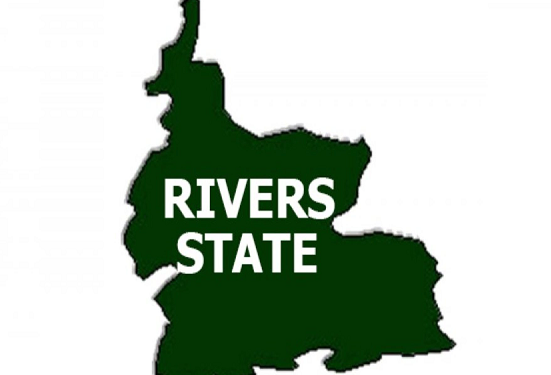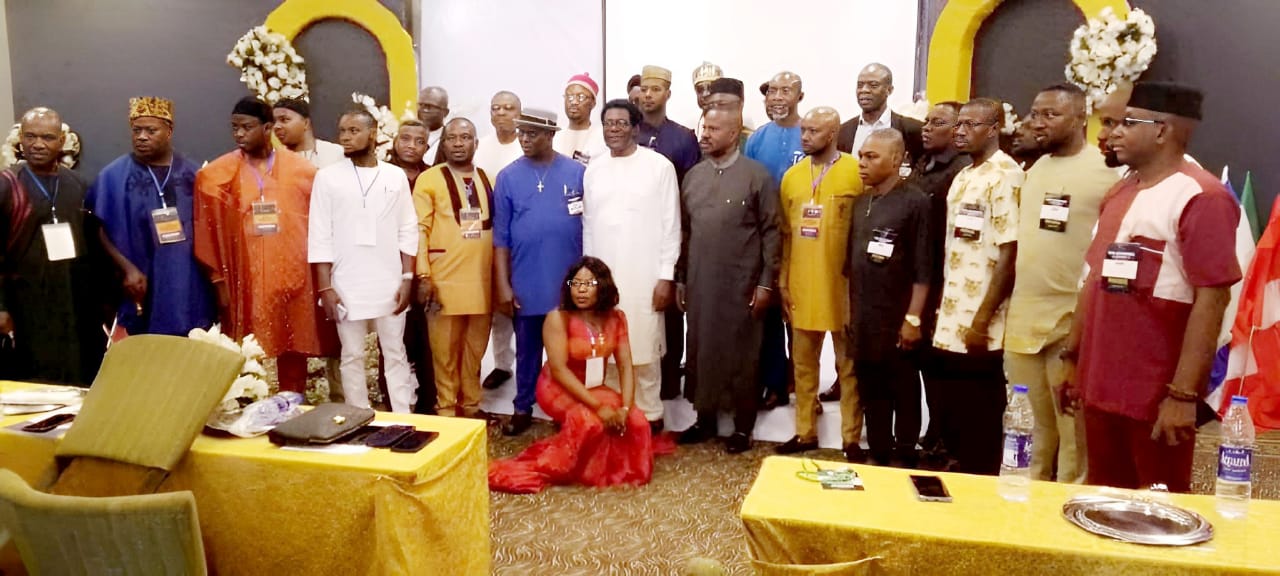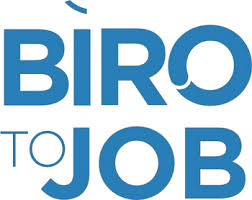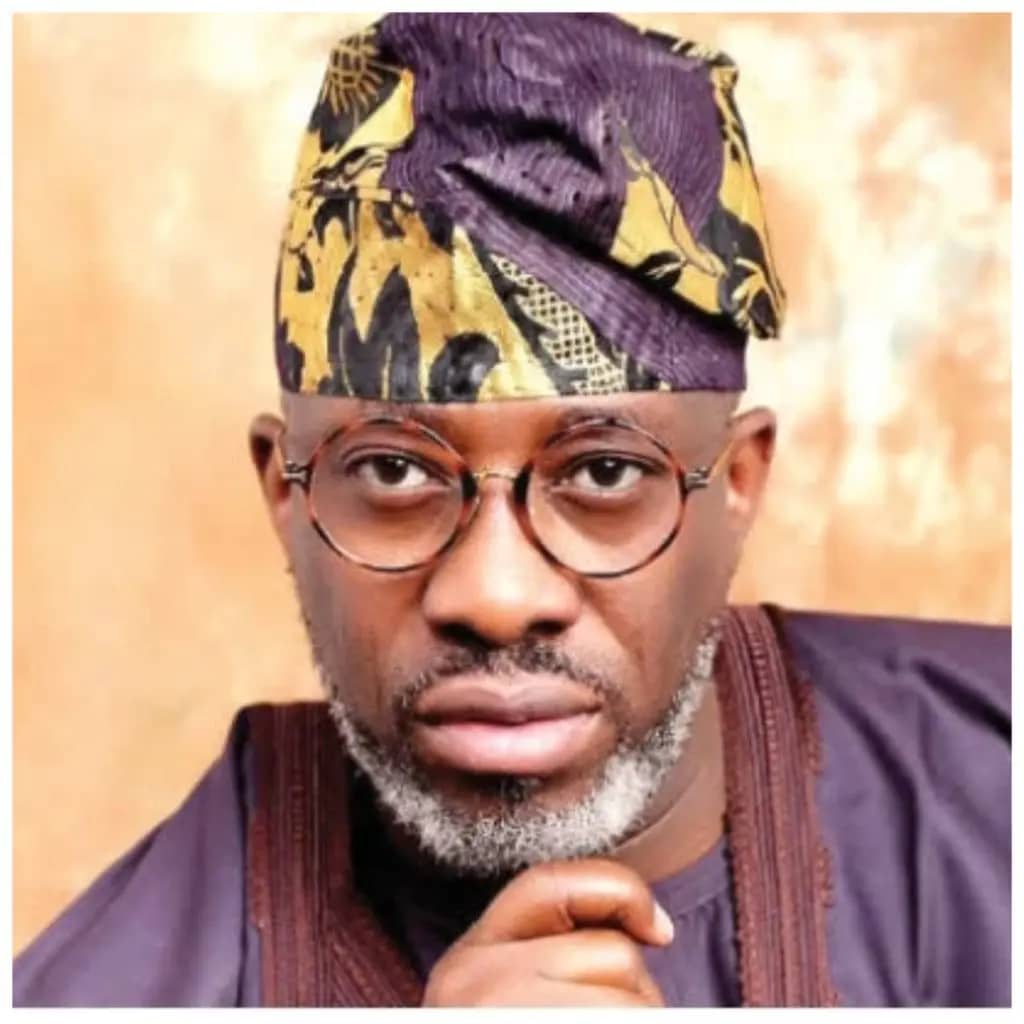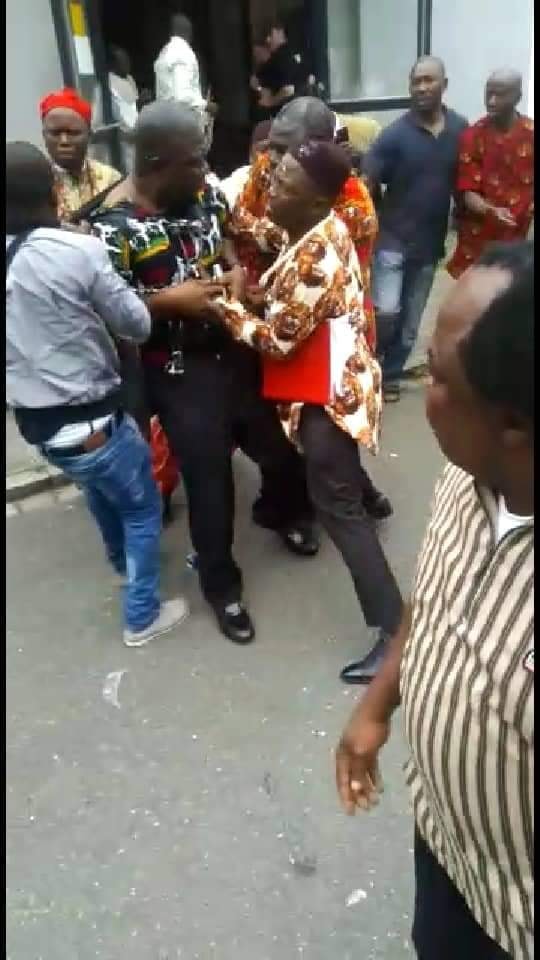INEC And Deregistration Of Political Parties
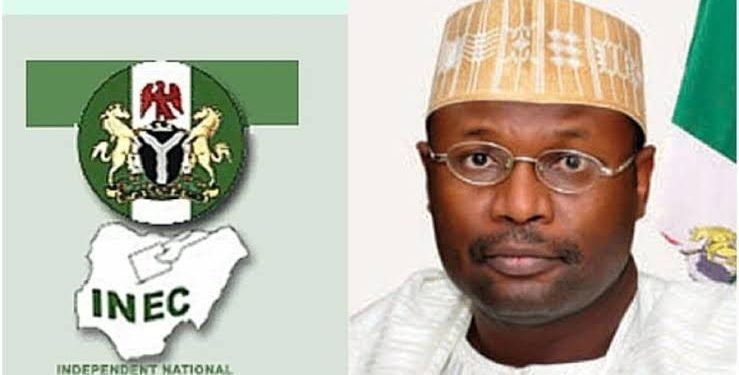
The Independent National Electoral Commission (INEC) has deregistered 74 political parties for failing to fulfil constitutional provisions. Correspondent OKODILI NDIDI examines the arguments for and against delisting of parties.
Before the Independent National Electoral Commission (INEC) delregisteref 74 political parties for failing to satisfy the requirements to operate as contained in the constitution, the number of registered parties was 96.
Giving the sheer number of parties, one would have expected robust opposition and engagement that will constantly put the ruling party in check. Unfortunately, this is not to be as most of the parties have turned out to be lame ducks crowding the political space for reasons other than strengthening the electoral process.
Majority of these parties, mockingly referred to as ‘mushroom parties’, only come alive during elections and go into oblivion immediately after, though not without constituting inconveniences and setbacks for the electoral umpire.
Most of these parties have been discovered to be planted by election merchants who trade them as alternative platforms to politicians who fail to clinch the tickets of their respective parties.
Some of them, apart from defaced signboards hanging on front rails of rented apartments, there is nothing to suggest that they are political parties, bringing to question, how they scaled through the registration process in the first place.
On February 6, last year, INEC cleared 16 parties, which, it said, have fulfilled the requirements for existence in line with Section 225(a) of the 1999 Constitution (as amended) shortly after announcing the deregistration of 74 others.
The certified political parties include Accord Party (A), Action Alliance (AA), African Action Congress (AAC), African Democratic Congress (ADC), African Democratic Party (ADP), All Progressives Congress (APC), All Progressives Grand Alliance (APGA), Allied Peoples Movement (APM), Labour Party (LP) and New Nigeria Peoples Party (NNPP).
Others are National Rescue Movement (NRM), Peoples Democratic Party (PDP), Peoples Redemption Party (PRP), Social Democratic Party (SDP), Young Progressive Party (YPP) and Zenith Labour Party (ZLP).
INEC Chairman, Mahmood Yakubu however, said that two additional parties the Action Peoples Party (APP), which failed to obtained the Order of Court against its deregistration and another party registered by Court Order after the 2019 general elections will continue to exist.
Yakubu said: “Prior to the 2019 general elections, Nigeria had 91 political parties. One more party was registered by Court Order after the election, making a total of 92 political parties. The 1999 Constitution of the Federal Republic of Nigeria (as amended), vests in INEC the power to register and regulate the activities of political parties.
“In 2018, the constitution was amended. In addition to the extant provision for the registration of political parties, the Fourth Alteration to the Constitution (Section 225A) empowers the Commission to deregister political parties”.
The INEC chairman said prior to the Fourth Alteration, the Electoral Act 2010 (as amended) had provided for the deregistration of political parties. Based on this provision, the Commission, between 2011 and 2013, deregistered 39 political parties.
However, these parties challenged the power of INEC to deregister them, particularly on the ground that the Electoral Act is inferior to the Constitution and that deregistration infringed their fundamental rights under the same Constitution. Subsequently, the courts ordered the Commission to reinstate the parties. It was for this reason that the National Assembly amended the Constitution to empower the Commission to deregister political parties on the following grounds, breach of any of the requirements for registration as a political party, failure to win at least 25 per cent of the votes cast in one State of the Federation in a Presidential election or 25 per cent of the votes cast in one Local Government Area of a State in a Governorship election and failure to win at least one ward in a chairmanship election, one seat in the National or State Assembly election or one seat in a Councillorship election.
Yakubu said to implement the provision of the Fourth Alteration to the Constitution, the Commission carried out an assessment of political parties to determine compliance with the requirements for their registration.
Similarly, following the conclusion of the 2019 general elections, including court-ordered re-run elections arising from litigations, the Commission was able to determine the performance of political parties in the elections. In addition, they were also assessed on the basis of their performance in the Area Council elections in the Federal Capital Territory (FCT) which coincided with the 2019 general election.
The FCT is the only part of the country where INEC is empowered by the Constitution to conduct local government elections.
Consequently, the Commission has determined that 16 parties have fulfilled the requirements for existence based on Section 225A of the 1999 Constitution (as amended).
“Seventy-five political parties did not satisfy the requirements of the Fourth Alteration to the Constitution.
However, one of the parties, the Action Peoples Party (APP), filed a suit in court and obtained an order restraining the Commission from deregistering it. Consequently, the party remains registered pending the determination of the case by the court.
The new political party, Boot Party (BP), registered by court order after the 2019 general election will also continue to exist.
Yakubu said: ” Accordingly, 74 parties are hereby deregistered. With this development, Nigeria now has eighteen (18) registered political parties.”
The deregistered parties havr exhausted all options to reverse the Commission’s action, how have the certified political parties fared in reinvigorating the role of the opposition. Only about six out of the eighteenth political parties cleared to operate have proved to be up to the task.
Apart from the ruling All Progressives Congress (APC), the major opposition party, the People’s Democratic Party (PDP), the All Progressives Grand Alliance (APGA), other parties showing strength include Accord Party (A), Action Alliance (AA), African Action Congress (AAC), Labour Party (LP) and the Young Progressive Party (YPP).
However, apart from the APC and PDP,.only APGA out of the rest political parties has one state governor, while the remaining 35 states are shared by the two major parties, fuelling suspicions that the nation is heading to a two-party system.
Nevertheless, the deregistered parties have shown remarkable strength in fighting their disqualification, more than they had deployed to stay afloat.
Many suits challenging the deregistration are still pending in different Courts, even though the Supreme Court had in a May 2021 judgement affirmed the powers of INEC to regulate political parties including the sacking of those that fail to meet the requirements to operate.
Sir Peter Okala, the Anambra State Chairman of the National Conscience Party (NCP), one of the deregistered political parties, accused INEC of speaking from both sides of the mouth.
Okala, who is also the Anambra State Coordinator of the Inter-Party Advisory Council (IPAC), noted that while justifying the deregistration of the 74 political parties, the Commission is profiling no fewer than 100 groups seeking to be registered as political parties.
He however, blamed the inability of the parties to adequately play the role of opposition on lack of funding, alleging that the two major parties are sponsored with public funds.
According to him INEC didn’t follow due process in the deregistration of the affected political parties, noting that the case was still pending when the electoral umpire delisted the parties.
Okala insisted that the opposition parties are poised to play their roles but are handicapped by poor funding, “the so called big political parties are funded with public funds, while the other parties that parties that are not in power are self funded”.
CUPP also dismissed the Supreme Court judgment that backed INEC’s action, vowing that the matter is not over yet.
In a recent statement signed by Olusegun Peters Chairman, Contact and Mobilization, and member, Steering Committee and High Chief Peter Ameh,
National Secretary, Steering Committee, the group, argued that the judgment of the apex Court affected just one political party, National Unity Party (NUP) and has nothing to do with the other deregistered political parties.
According to the statement, “the Coalition of United Political Parties (CUPP) warns the Independent National Electoral Commission (INEC) to stop misleading the public over the judgment of the Supreme Court on Friday 7th May 2021, which upheld the deregistration of National Unity Party (NUP) as the judgment has no effect whatsoever in the matter of 22 political parties pending at the Supreme Court and other parties at various stages of litigation.
“The courts decisions on NUP from high court to apex court bind only NUP based on its prayer before the courts”.
It continued that, “the judgment does not in any way bind the 22 political parties which got victory at the Court of Appeal as they are not parties before the Supreme Court in NUP’s case and their prayers before the courts are also different”.
Also criticising the deregistration, former National Chairman of the Inter-Party Advisory Council (IPAC), Peter Ameh, dismissed wide held opinion that the multiplicity of political parties drive up the cost of conducting elections and crowd the political space.
He opined that political parties are not just machineries for grabbing power, adding that INEC was not fair to some of the political parties that were registered three months to the 2019 general elections and deregistered thereafter.
According to him, “since the deregistration has been done, has it sanitized the electoral process, I think the issue is that it was hurriedly done by misinforming the general public about whether it was an obstacle to credible election or adds extra charges to the conduct of free and fair election, the answer is that it wasn’t in any way. I think in Nigeria, the population alone compared to other democratic nations with multi-party democratic platforms demands more political parties.
INEC Commissioner and Chairman Information and Voter Education Committee, Festus Okoye, maintained that, “our constitutional and electoral framework are rooted firmly in multiparty democracy. Section 221-227 of the Constitution of the Federal Republic of Nigeria, 1999(as amended) and sections 78, 82, 84 and 88 of the Electoral Act 2010(as amended) mandates the Commission to register political associations that meet the minimum constitutional and legal threshold for registration. As a constitutional and legal body, the Commission strives to remain within the ambit and confines of the constitution and the law in matters relating to the registration and administration of political parties.
“As you know, the political parties are the only platform through which candidates contest election and they canvas for votes, mobilize funds for their parties and candidates and mobilise their members and supporters to engage the electoral process. Section 225A of the Constitution mandates the Commission to deregister non performing political parties. It specifies conditions that must be met by political parties to remain as such and function as such.
“Political parties that fall short of the requirements of section 225A of the Constitution must be deregistered. Failure by the Commission or refusal by the Commission to deregister non performing political parties amounts to deliberate, mischievous and willful disobedience and violation of the constitution.
“The deregistration of 74 political parties has to some extent reduced the size of our ballot papers and result sheets. It has assisted the Nigerian people make the selection of the logo of their political parties easier. Some of the logos and symbols and even names of the parties are more or less similar and it is difficult wading through the logo of 92 political parties on the day of election”.
He said: “The clustering of the name and logo of too many political parties on our ballot papers confuses the electorate and leads to so many spoilt ballots. The deregistration of political parties has also helped in speeding up the sorting and counting of votes at the polling units and the various levels of collation.
“More fundamentally, it has reduced to the barest minimum the phenomena of exclusion from the ballot that leads to annulment of elections and the conduct of fresh ones on grounds of exclusion of the logo of a party from the ballot. Political association can continue to function but can only be registered on meeting the required constitutional and legal threshold”.
On the challenges of managing multiple parties, especially during elections, he stressed that, “all political parties enjoy the same incidents of registration. In constitutional and legal parlance, there is no big party and no small party. Registered political parties organise congresses and primaries for the election of their officials and candidates and by section 85 of the Electoral Act, 2010 (as amended) the Commission is obligated to monitor the Congresses, Convention or Meetings of political parties and this involves planning, resources and personnel.
“Sometimes the political parties deliberately and out of mischief drag officials and staff of the Commission into their own internal challenges. The Commission prints ballot papers and result sheets to reflect the number of political parties contesting elections and sometimes Presiding Officers, Collation Officers and Returning Officers have difficulty coping with the large number of political parties on the ballot. These parties deploy polling agents to polling units and collation centers and they must be processes before deployment.
“Sometimes litigations emanating from internal party disputes affects the planning and conduct of elections. At other times, the same challenges manifest in post-election disputes and the Commission is joined either as a defendant or respondent in almost all disputes. It is challenging managing political parties and adhering to constitutional timelines relating to their operations and conduct of elections”.
On the cost implications, Okoye noted that, “deploying staff and materials to monitor the Conventions, Congresses and meetings of political parties for the purpose of electing their officials or for the conduct of party primaries is a costly venture. Sometimes the parties postpone their Meetings and Congresses and Conventions at the last moment and by then the Commission has already deployed.
“The Commission engages external solicitors to handle the myriad of pre-election and post-election cases and petitions that are filed by the political parties”.
On whether the Commission has a benchmark for the number of political parties that will be considered healthy and appropriate, he replied that, “it is not within the constitutional competence and legal remit of the Commission to prescribe a benchmark for the number of partiers that should exist in Nigeria.
“No benchmark is prescribed in the Constitution of the Federal Republic of Nigeria. The Commission must register a political association that satisfies the constitutional and legal threshold. It is only the Nigerian people and the National Assembly that are empowered to constitutionally and legally peg and determine the number of political parties that should exist.
The Commission’s responsibility is to implement the constitution and the law. Therefore, the Commission is obligated to register political associations that meet the prescribed constitutional and legal requirements”.
On whether it is meeting its obligations to the political parties, Okoye said, “defeintely. The Commission registers political associations and deregisters already registered political parties that fall off the radar of section 225A of the Constitution. The Commission monitors their Conventions, Congresses and Meetings convened for the purpose of election members of their executives or for purposes of party primaries.
“The Commission monitors the organization and operation of the political parties. The Commission holds quarterly meetings at the National and State levels with the leadership of the various political parties. The political parties must strive to meet their obligations to the Nigerian people and organize their affairs in such as way as to elevate Nigerian democracy and energize the electoral process.
Also on whether INEC considering the registration of new political parties before 2023 general elections, Okoye disclosed that, “there are pending applications and the Commission is processing the applications. Political associations that satisfy the constitutional and legal requirements will be registered while already registered political parties that are non performing will be deregistered”.
– The Nation

